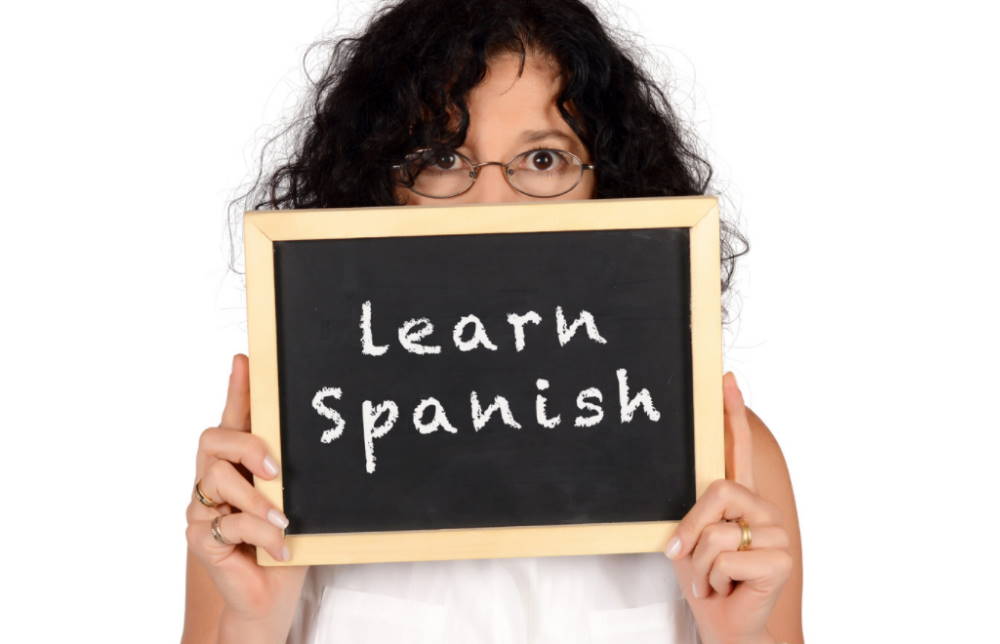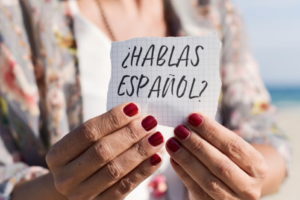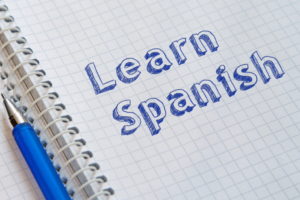
Learning Spanish for Beginners: Background and Basics
- Categories TIPS FOR LEARNING SPANISH
- Date 9 June, 2021
Are you at a point in your life when you would like to learn Spanish? You may not know it, but tens of millions of people study this language every day all over the world. And no wonder. Spanish is a language with a rich linguistic history, full of beauty and meaning, and learning Spanish can take you all over the world!
We know that you probably have a lot of questions about what it takes to start learning Spanish for beginners. In any case, you should know that it is a worthwhile endeavor. With the right support, you will see how your efforts will be rewarded.
Background and basics of learning Spanish
Where is it an official language?
With just over 400 million Spanish speakers around the world, it is the second most spoken language in the world (after Chinese).
Spanish is the official language of 21 countries:
- Argentina, Bolivia, Chile, Colombia, Costa Rica, Cuba, Dominican Republic, Ecuador, El Salvador, Equatorial Guinea, Guatemala, Honduras, Mexico, Nicaragua, Panama, Paraguay, Peru, Spain, Uruguay, and Venezuela.
It is also the official language of the territory of Puerto Rico.
Learning Spanish: time and effort
It is obvious that you need to invest time and effort to learn any new skill, whether it is cooking, playing an instrument or practicing a sport. Learning Spanish is no exception. But, as with all other examples, it takes regular commitment and a willingness to push yourself and keep going even when the going gets tough.
According to some experts, learning the basics of the vocabulary of a language can be achieved in about 15 minutes a day. On the other hand, to master a little more grammar and pronunciation, it takes about 3 weeks. It is vital to choose the right tools and teachers to develop any skill.
The attitude, resources, and frequency with which you practice the language will determine how long it will take you to learn Spanish (or any other language).
The process of learning Spanish
You cannot expect to master the language at the drop of a hat. Reaching a level of fluency requires a multi-step process. Obviously, you will start by learning Spanish for beginners, then you will seek to expand your knowledge of the language to an intermediate level, and finally you will start with advanced Spanish.
Spanish for beginners
At this level, your efforts will mainly focus on learning the basics of Spanish for beginners, so that you will be able to hold a basic conversation with any Spanish speaker.
This level includes vocabulary on how to introduce yourself, talk about your origins, describe characteristics of the people, places, and things around you, as well as asking basic questions to get the information you need.
At this level, you will learn the basic verb conjugations and pronouns such as yo (“I”), tú (“you”), nosotros/as (“we”), ellos/as (“they”), etc. You will also start to become familiar with the verbs “ser” and “estar” (“to be”).
You will also learn the use of nouns in Spanish: the particularity of nouns with masculine or feminine gender and how adjectives must agree with these nouns in gender and number.
Obviously, you will also learn other basic concepts of Spanish for beginners such as numbers, some expressions, colors, etc.
How to learn Spanish faster?
There is no universal answer when it comes to learning a new language. Choosing a learning style or method can be overwhelming. As a rule, the easiest and quickest way to learn Spanish is through an alternative that is least inconvenient for you. If you do not like to study alone in front of a book because you find it too boring, it is better to choose a more exciting or engaging alternative.
The following alternatives are available to you:
- Learn Spanish in a classroom at our school located in Denia.
- Learn Spanish online
- Learn Spanish with multimedia resources such as ebooks, podcasts, films or even TV programmes.
You may also like

More About the Spanish Accent

Tips for Fast Progress in Spanish for Beginners

